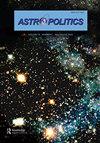International Relations in Space: The Role of Miscalculation, Militarization, and Weaponization
Q3 Social Sciences
引用次数: 0
Abstract
ABSTRACT Although space is often overlooked in the field of international relations, the unique domain is increasingly becoming a secondary ground for conflict among powerful players such as Russia, China, and the United States. The risk of conflict in space has been compounded by Earthly diplomatic relations as well as miscalculation, militarization, and weaponization – important factors due to their highly sensitive nature. A lack of open communication channels and international guidance has left states such as the United States and China with few options when it comes to making important decisions about protecting satellites and military assets. This, along with the increasing prevalence of space debris, encourages impulsivity which consequently leads to a higher risk of unnecessary attack or retaliation. Perhaps magnified by these chilled relationships, militarization and weaponization have continued to go unchecked by international organizations. This has resulted in a space environment plagued with flashpoints for conflict and an international community with no comprehensive regulations guiding their response. Because a war or even minor conflict in space would render available orbit unusable, it is imperative that the international community cooperate on de-escalatory solutions such as regulations on weaponization, joint space ventures, information sharing, and expansion of joint space assets such as the International Space Station.太空中的国际关系:误判、军事化和武器化的作用
尽管空间在国际关系领域经常被忽视,但这一独特的领域正日益成为俄罗斯、中国和美国等大国之间冲突的次要场所。地球上的外交关系以及误判、军事化和武器化加剧了太空冲突的风险——这些因素由于其高度敏感的性质而变得非常重要。由于缺乏公开的沟通渠道和国际指导,美国和中国等国在做出有关保护卫星和军事资产的重要决策时几乎没有选择。这一点,加上空间碎片日益普遍,鼓励冲动,从而导致不必要的攻击或报复的更高风险。也许由于这些冷淡的关系,军事化和武器化继续不受国际组织的制约。这造成了一个充满冲突爆发点的空间环境,国际社会没有指导其反应的全面条例。由于一场太空战争或哪怕是轻微的冲突都会使现有轨道无法使用,因此国际社会必须就缓和局势的解决办法进行合作,例如对武器化、联合太空企业、信息共享以及扩大国际空间站等联合空间资产的规定。
本文章由计算机程序翻译,如有差异,请以英文原文为准。
求助全文
约1分钟内获得全文
求助全文
来源期刊

Astropolitics
Social Sciences-Political Science and International Relations
CiteScore
1.20
自引率
0.00%
发文量
2
期刊介绍:
Astropolitics: The International Journal of Space Politics and Policy is a peer-reviewed academic journal. The journal is dedicated to policy relevant and interdisciplinary analysis of civil, commercial, military, and intelligence space activities. Committed to the highest editorial standards, Astropolitics is the international journal of choice for the academic, policy-maker and professional in the space community.
 求助内容:
求助内容: 应助结果提醒方式:
应助结果提醒方式:


